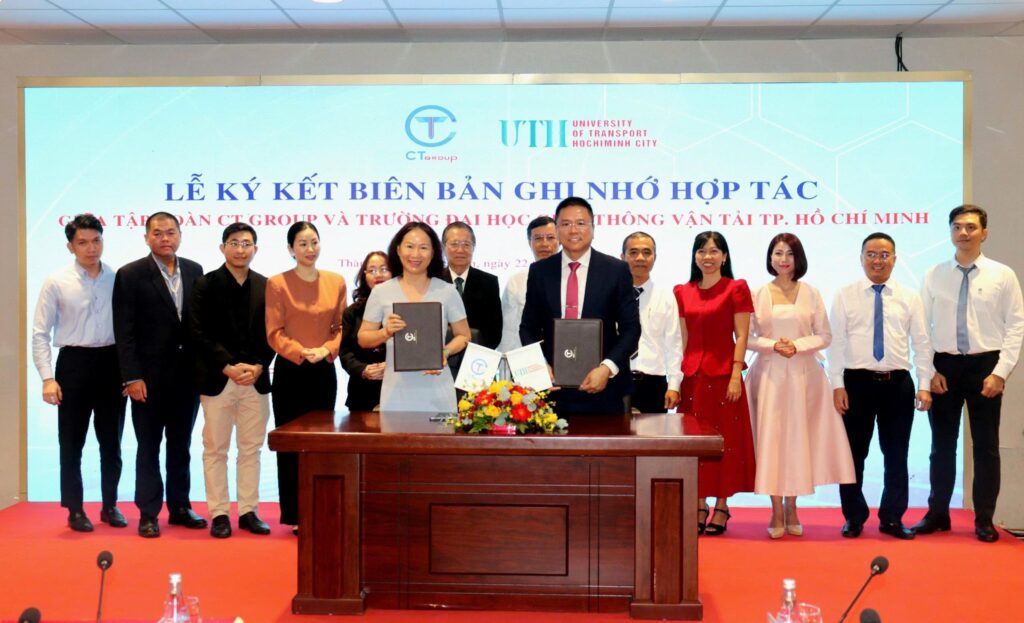Ho Chi Minh City is accelerating the implementation of Resolution No. 57-NQ/TW issued by the Politburo, promoting digital government and digital citizenship to better serve both citizens and businesses.

Ho Chi Minh City is actively advancing digital government and digital citizenship initiatives to enhance services for people and businesses
At the August briefing session organized by the Propaganda and Mass Mobilization Commissions of the Ho Chi Minh City Party Committee, Mr. Lam Dinh Thang, Director of the Ho Chi Minh City Department of Science and Technology, shared the city’s acceleration efforts in implementing Resolution No. 57-NQ/TW (Resolution 57) of the Politburo, aimed at promoting digital governance and digital citizenship to better serve the public and the business community.
According to Mr. Thang, in addition to traditional growth drivers, Ho Chi Minh City has now identified science and technology as one of the new driving forces for the city’s economic, cultural, and social development in the coming period.
Given its current capabilities and context, Ho Chi Minh City is fully equipped to make science and technology a new engine of growth. To this end, departments and sectors across the city have proactively issued programs and action plans to implement Resolution 57. The Steering Committee for the implementation of Resolution 57 is headed by Mr. Nguyen Van Nen, Secretary of the Ho Chi Minh City Party Committee.
In 2025, the city is prioritizing the fulfillment of key targets. These include the digital economy, investment in science, technology, and innovation, 5G coverage, online public services, digital administrative procedures, and the rate of citizens using VNeID. Notably, the contribution of the digital economy-including core digital economy, platform-based digital economy, and sectoral digital economy-is expected to account for approximately 25% of the city’s GRDP.
Regarding investment in science, technology, and innovation, Mr. Thang stated that the target is to allocate 3% of the city’s budget for research, development, and workflow improvement by 2030.
Transforming Ho Chi Minh City into a Smart City by 2030
Regarding the city’s digital transformation program, Mr. Vo Minh Thanh, Deputy Director of the Ho Chi Minh City Department of Science and Technology, stated that the program aims to turn Ho Chi Minh City into a smart city by 2030, through a fundamental and comprehensive transformation in the operation of digital government, digital economy, and digital society.
At present, the foundation for digital transformation has been firmly established. First and foremost, the strong interest and commitment from city leadership, citizens, and businesses has helped Ho Chi Minh City remain a national frontrunner in this field, maintaining its position as the second-ranked locality nationwide in the Provincial Digital Transformation Index (DTI) for two consecutive years, 2022 and 2023.
In terms of digital infrastructure, the city has already achieved broadband fiber optic coverage down to the commune level. Additionally, approximately 96% of the population now uses smartphones.
As for digital government, since the implementation of the two-tier government model, the city has achieved many positive results. The system is currently operating in a stable and streamlined manner. After just one month under the new model, the citizen satisfaction rate with public services—as measured by the national public service portal systems—has reached approximately 94%. At the same time, the city has simplified and cut nearly 300 administrative procedures, saving more than 3,500 working hours.
In recent surveys by city leaders during visits to wards and communes, and in meetings preparing for the upcoming first local Party congresses, many localities reported that one of their key breakthrough goals is to successfully implement the Politburo’s Resolution 57, with a strong focus on digital transformation and building a modern digital administration that delivers maximum efficiency and convenience for citizens and businesses.
Currently, city leaders are taking decisive action to implement inter-jurisdictional administrative procedures. Ho Chi Minh City has selected 38 locations to pilot the reception of such procedures and is preparing budget allocations for infrastructure and equipment for the operation of public administrative centers.
Mr. Vo Minh Thanh also noted that the city has successfully deployed a number of key platforms and systems, such as the Local Government Service Platform (LGSP), the administrative procedure processing system, and the 1022 Public Service Call Center. Additionally, a single mobile application for digital citizens has been launched to integrate services and provide an effective communication channel between residents and government authorities.
Notably, the city has identified its data governance strategy as a central pillar, focusing on large data clusters related to citizens, finance-business, and land-urban planning. At present, the city is operating 45 shared databases and has made 91 open data sets available for citizens and businesses to access.

Ho Chi Minh City Sets Target for 100% Inter-Provincial Administrative Procedures by 2025
Attracting Major Technology Enterprises to Invest in the City
With regard to the digital economy, Ho Chi Minh City has set a target for it to contribute approximately 40% of its GRDP by 2030. To realize this goal, the City is focusing on developing large-scale high-tech zones. A notable example is the Quang Trung Software City (QTSC) chain, which has attracted 146 technology enterprises, created over 10,500 jobs, and generated nearly USD 500 million in revenue. Additionally, other high-tech parks in the City have become hubs for major technology corporations such as FPT, CMC Corporation, Intel, and Samsung. The City is also planning to establish two more software parks to meet increasing growth demands.
Chairman of the Ho Chi Minh City People’s Committee, Mr. Nguyen Van Duoc, stated that in order to support businesses in maximizing their internal strengths in line with Resolution 57, the City – in its role as the State – is vigorously developing a robust science, technology, innovation, and tech-startup ecosystem. This includes forming international-standard science and technology innovation centers closely linked with supporting systems in finance, services, markets, and infrastructure. At the same time, the City is promoting regional connectivity and international cooperation, attracting experts and major technology enterprises to invest locally.
Recently, thanks to its “transformation” and acceleration in implementing the science and technology development agenda aligned with the spirit of Resolution 57, Ho Chi Minh City has become an increasingly attractive destination for major tech corporations.
Many large corporations have begun investing in data center construction in the City. Notably, in late April 2025, Viettel Group broke ground on the Viettel High-Tech Data and Research Center in Tan Phu Trung Industrial Park. More recently, in July 2025, the CMC Technology Group received approval from the Management Board of the Saigon Hi-Tech Park (SHTP) to invest in a USD 250 million hyperscale data center project – CMC Hyperscale Data Center SHTP – at the SHTP. The aim is to meet the growing demand for data storage and processing, while accelerating digital transformation and smart city development.
According to Mr. Nguyen Trung Chinh, Chairman of the Board and Executive Chairman of CMC Group, “We do not consider the CMC Hyperscale Data Center SHTP to be just an ordinary data center. It will serve as a critical infrastructure foundation for Ho Chi Minh City to become a Digital Hub in the region and a core infrastructure supporting digital and AI transformation.”
As a private enterprise based in Ho Chi Minh City, Mr. Tran Kim Chung, Chairman of CT Group, remarked that Resolution 57 has had a positive impact on scientists, educators, and those involved in science, technology, and innovation. More than just a directional document, the resolution has helped address long-standing bottlenecks, igniting patriotism and fueling motivation for those working in science and technology to forge ahead.
Just over a month ago, CT Group unveiled Vietnam’s first 12-bit ADC (Analog-to-Digital Converter) chip design capable of a sampling rate of up to 200 MSPS. This chip converts analog signals into digital ones, and the achievement marks a significant milestone in the implementation of the Politburo’s Resolution 57 on breakthrough development in science, technology, innovation, and national digital transformation – as well as a testament to the determination and progress of Vietnamese private enterprises.






